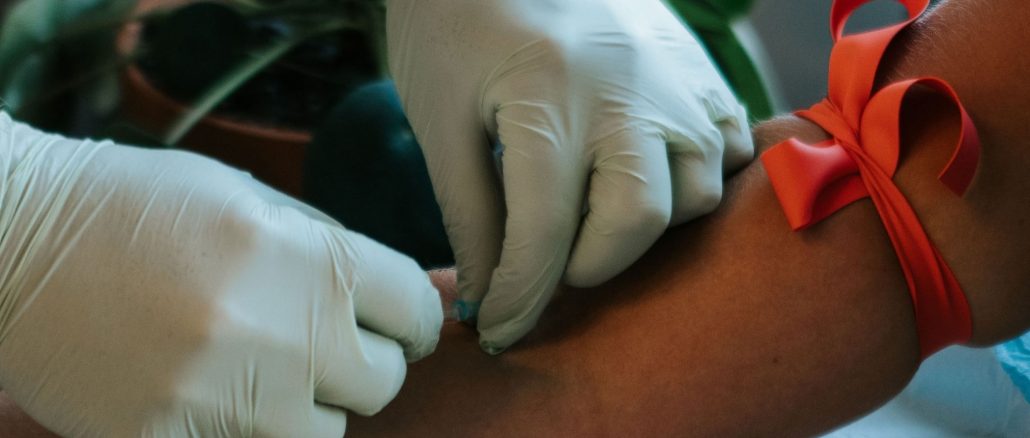
It was a summer cold that wasn’t going anywhere. My body ached. My skin was clammy; my body feverish. But it was my lungs, desperate for air, as ineffectual as gills on dry land that finally forced me to drag myself out of bed and to the Walk-In Clinic.
“Big breath in,” the doctor directed. “Again.”
I tried to expand my chest, invite air into my lungs. I wheezed and hacked. Coughed so hard that my ribs hurt and my diaphragm ached.
“You’ll need antibiotics,” he said, turning towards his desk.
Scribbling on my medical chart, the doctor talked about bed rest and fluid intake, drops of eucalyptus. I wasn’t paying much attention. I was too busy calculating how long before I could have my prescription filled at the pharmacy, drive home and crawl into bed. As the doctor held out my prescription, he had this quizzical look on his face. A look I’d seen often enough but hoped this time to ignore. I reached for the slip of paper in his hand but he was reluctant to let it go. There was an awkward tug-of-war, along with an uncomfortable moment of silence before he said, “If you don’t mind my asking, what are you?”
?
What: determiner, pronoun, exclamation
WHAT ARE YOU?
?
I could have said that I was the daughter of multiple diasporas, the descendant of enslaved people and British Empire Loyalists. That on my mother’s side I was Polish and __________. While on my father’s side I was Africadian and African-American, in addition to ________, __________, and __________.
?
My mother said, “when you were born, you were the apple of everyone’s eye.” Her perception of cherished position belied my experience. From my perspective, I was pigment and hair texture, gender and race, a doll to be played with, a mistake to be regretted, a figment of their imagination.
?
I was six, perhaps seven, and playing in the front yard of my best friend, Kathy’s house, along with a clutch of neighbourhood kids. Someone had brought a large rubber ball with them; the kind that stung upon impact. We played a game, one I don’t remember the rules for. I do recall that one player tossed the ball high into the air while the rest of us shouted, One. Two. Three. Nigger babies as Kathy’s dad watched from the landing. We must have been loud because the next thing I knew, my father was walking down the sidewalk, and past a number of houses before he silently took my hand and accompanied me home.
That was the day, my father sat me down and explained what that word meant. That was the day I realized that despite going to the same Catholic church, the same elementary school, eating the same foods on special occasions: garlicky Kielbasa sausage; homemade pierogies filled with cheese, pan-fried onions and potatoes; cabbage rolls and cabbage buns; homemade Paska bread at Easter, I was no more Ukrainian than Kathy’s cousin who had been adopted during Canada’s sixties scoop of Indigenous children from their families.
?
The summer I turned 12, Manitoba celebrated its 100th birthday. Members of the Royal family toured the province in celebration of its Centennial; attending dedication ceremonies across the province. In Winnipeg, the Prince of Wales and Princess Anne were to participate in the opening of a nursing home’s newest wing. Our family made the pilgrimage to view the festivities. Dad dropped us off, then drove to park the car. My brothers and I, like well-trained and dutiful ducklings trailed after our mother as she searched for a comfortable spot for us to watch from the crowd. She chose a location next to two elderly women dressed in black, their gray hair covered by babushkas. The women smiled at us. Members of my mother’s tribe, they traded idle pleasantries in English and in Polish—a language that was never taught or shared with us kids. All seemed to be well until my father showed up, and the two age-bent women realized that my parents were together and we were a family. The tension was palpable as the women raised a barrier of disapproval, a situational keep out this means you that I had come to know so well over the years.
“Let’s go,” my mother said, before storming off.
We struggled to keep pace, she was moving so fast. Her rage miraculously parted the crowd as we followed in her wake.
“Those two didn’t even try to hide it,” my mother said.
I knew better than to voice my disappointment of having left before the event had even begun. I sat in the backseat of our family’s car with my brothers. The thud of the car locks triggered a sunken feeling inside me. Like it or not we were in this together.
“Did you see the way they were looking at us with their noses all up in the air?” my mother said, as my father signalled a left hand turn onto the Redwood Bridge. “Looking at us as if we smelled bad or something.”
I stared silently out the window—willed myself not cry—refusing to give the two elderly women the satisfaction. We turned onto the Redwood bridge that spanned the watery divide between the North End and Elmwood neighbourhoods, where my parents were raised. Just over the bridge was a little playground with wooden see-saws and a couple of swing-sets. My mother’s childhood home was just a few streets over. Her parents were long gone. They’d packed up before I was born, moved to Hollywood, California, to be near their youngest daughter following dreams of stardom. Moved away from the shame of having, not one, but two daughters, married to black men during the 1950s.
“They were talking about us,” my mother said.
My father sighed, weary. “You don’t know that.”
But she did. My mother had grown up speaking Polish. Turning to face me, her anger radiated like heat waves rising from hot pavement. “If anybody asks, you tell them. You tell people what you are. That you’re black.”
?
Black? Maybe. In some circles. But in others I was coloured. Negro. Nigger. Tragic mulatto. Mixed. Mutt. Half-breed. Heinz 57. Oreo. A mistake. My complexion too dark for one side of the family, and to light for some on the other. Stay out of the sun. Stop acting white. You’re lucky; you can pass.
?
“Pass for what?” I’ve often wanted to say.
?
My mother was a miser when it came to sharing her memories. One of the few stories she told was about my parents’ wedding. “It was difficult to find a priest that would marry us,” she would say. “They said it was wrong for a black man and a white woman to be together.” For the longest time, I couldn’t help but think that if the priests thought my parents’ marriage was a mistake, than I had to be a mistake as well.
?
My maternal grandmother often came to stay with us during the summer. She’d lay claim to my room by tossing her suitcase on my bed. She brought us trinkets, Mickey Mouse ears and postcards from Vegas, citrus fruit from her backyard. She’d take me with her to play Bingo. She told me, I was her lucky charm.
?
I’m ten, lying on the pull-out couch in the living room, a blanket held close to my face as I pretended to be asleep. Beneath the covers, my fingers were crossed. I was hopeful; this year, a family trip to Disneyland. A thin wall divided the living room from the kitchen where my mother, aunt and grandmother, visiting from California, were seated around a Formica-topped table. The living room wall was wallpapered with a pattern of schooners, lords-a-waiting, majestic trees, and hunting dogs. While in the kitchen, the wall was covered in faux wood paneling.
I caught and released snippets of their conversation carried through the open doorway. A single globe hung from the kitchen ceiling, and cast a full moon eerie glow against the darkened screen of our black and white television. “You’re welcome to come with the kids,” Gran said. “But if you come to visit he can’t come with you. And you’ll have to tell people the kids are Spanish.” I heard the push back of a chair; then silence; next the sound of running water as my mother stood over the kitchen sink and washed dishes.
?
A family tree split down the middle and divided by race. We never did visit my mother’s relatives in the United States; my grandparents, aunt and uncle, and their genetically acceptable offspring.
?
In my teens, I fell in love with reading science fiction. My favourite book was The Martian Chronicles by Ray Bradbury. In the chapter entitled “September 2005: The Martian,” the Martian, Tom, had the ability to shape-shift in accordance to the dreams and wishes of a colony of people from Earth, who had built a town replicating small-town America. Tom lonely, and in need of love ventured into their midst transforming first into someone’s dead son, than someone’s long-lost daughter, a deceased wife, a husband, a criminal. The constant shape-shifting to fulfil the needs of the colonizers’ gaze, ultimately overwhelmed Tom, and lead to his death.
?
I’m sixteen and well on my way to becoming a Tahiti Sweetie. Due to my olive complexion, men considered me exotic. Even my best friends would comment that I had such an unconventional look. As if my genetic make-up provided me with a special leg up when it came to attracting male attention—whether I wanted it or not.
?
During a recent visit to Hell’s Kitchen Flea Market in Manhattan, I came upon an oil painting from 1955. The subject was a young girl, around the age of six, with blue eyes and shoulder-length blond hair. She had the healthy, rosy glow that comes from outdoor play and was dressed informally, as if she were about to head outside for a Saturday morning game of kick the can or hopscotch. The unframed canvas had a few dings and an aged patina, but I liked the imperfections. When I asked the vendor how much he wanted for the portrait, he looked at me and walked away. His friend, who was seated in an old lawn chair next to a table piled with old photographs, said “You’ll have to excuse my buddy. You look a lot like his ex and man, if that girl didn’t go and break his heart.”
“I’m sorry,” I said.
“Not your fault,” he replied. “Where you from?”
“Canada,” I said. “A place called Winnipeg smack dab in the middle of the country.”
“You don’t say,” he replied. “I could’ve sworn you were Puerto Rican.”
?
At a writers’ workshop, I did a quick survey scan before I took a seat. I was the only woman of colour in the room, which was something that often made me uneasy. I was concerned that any second I would be reduced to a teachable moment or the appointed representative for all people of colour to get published because of all that talk of diversity, and uplifting marginalized communities going around. One woman lamented how difficult it was for her white cis-male friends to get their poetry published. Whether right or wrong, I stayed silent, exhausted by the blinders that come with white privilege. During break, one of the women, a well-respected poet informed me I was lucky.
“What do you mean?” I asked her.
“I mean,” she said, “that you’ll have no problem getting published because you’re Indigenous.”
“Um, I’m not Indigenous,” I replied.
The sideways smirk and crinkle of disbelief framing her eyes, suggested that she believed otherwise.
?
My childhood bore the rhythm of ritual, of Sunday suppers with my father’s parents, siblings, and extended family. After church, we’d pile in the car, my father behind the steering wheel. We drove towards the Redwood bridge, crossed over into the North End where my grandparents lived on Cathedral Avenue. But first, we would cruise along Scotia Street which ran alongside the river, where boulevards of century-old elm trees shaded neat and tidily kept houses. After a couple of loops through Kildonan Park, it was time to head over to my grandparents’ place. Grandma Daisy and the eye-stinging scent of Lysol would greet us at the door.
My grandma kept a spotless house, one bordering on sterile. There was always a mad dash through the doorway, in hopes of being one of the lucky few to camp out for dinner on TV trays in the living room. Betrayed by our empty stomachs, the rest of us crammed around the kitchen table. A captive audience, Grandma Daisy piled our plates with fried chicken, corn, mashed potatoes and gravy; plied our ears with tales of childhood traumas. “People like to think that it’s bad only in the States,” she’d say over supper. “But up here it’s just as prejudiced. Worse.”
My grandma recounted tales about her girlhood, in Truro, Nova Scotia; her life on “the Island” which wasn’t an island at all, but a segregated black community built on marshland. She spoke of prejudice and race riots, transgressions and oppressions. After dinner and an evening visit, our family would gather at the the back door, ready to say our good-byes. With my parents’ arms laden with leftovers, Grandma Daisy would take me aside before I left.
“If someone asks, you tell them. You’re eighth-generation Canadian on your father’s side,” she’d say. “Our people came up with the Empire Loyalists. We’ve been in this country longer than most and still, they treat us like dirt.”
The sharp aroma of Lysol clung to our clothing, lingered long after the bounty of Grandma’s leftovers disappeared.
?
I snap back to the Walk-In Clinic’s antiseptic office, and the question of “What are you?” Wanting the tug-of-war over, I looked at the Walk-In Clinic doctor and acquiesced. “My mother’s white and my father is black,” I said, once again reduced to false binaries that would split me in two for someone else’s convenience and avoidance of discomfort.
“I knew there was something about you,” he responded.
I walked out of his office with my prescription in hand. On the way to the pharmacy and home, I passed the Redwood Bridge, and the divide that I have dealt with my entire life. Stopped at a red light, my car idled as I waited to breathe.
AUTHOR
Long-listed for The Journey Prize, I’ve won awards for my fiction and CNF; most recently The Constance Rooke Creative Nonfiction Prize. My work has appeared in literary journals such as The Fiddlehead, The Malahat Review, Prairie Fire, Room, Skin Deep: Race and Culture Magazine, and the anthologies, The Journey Prize Stories:30 and Black Writers Matter. Writing from Treaty One territory, I like to spend time with family and friends, and explore nature with my dog, Toby. Daughter of the African diaspora, I’m writing a hybrid memoir-in-essay, and a short story collection in which readers can expect the unexpected.
Featured image: Photograph by Creators Collective on Unsplash.
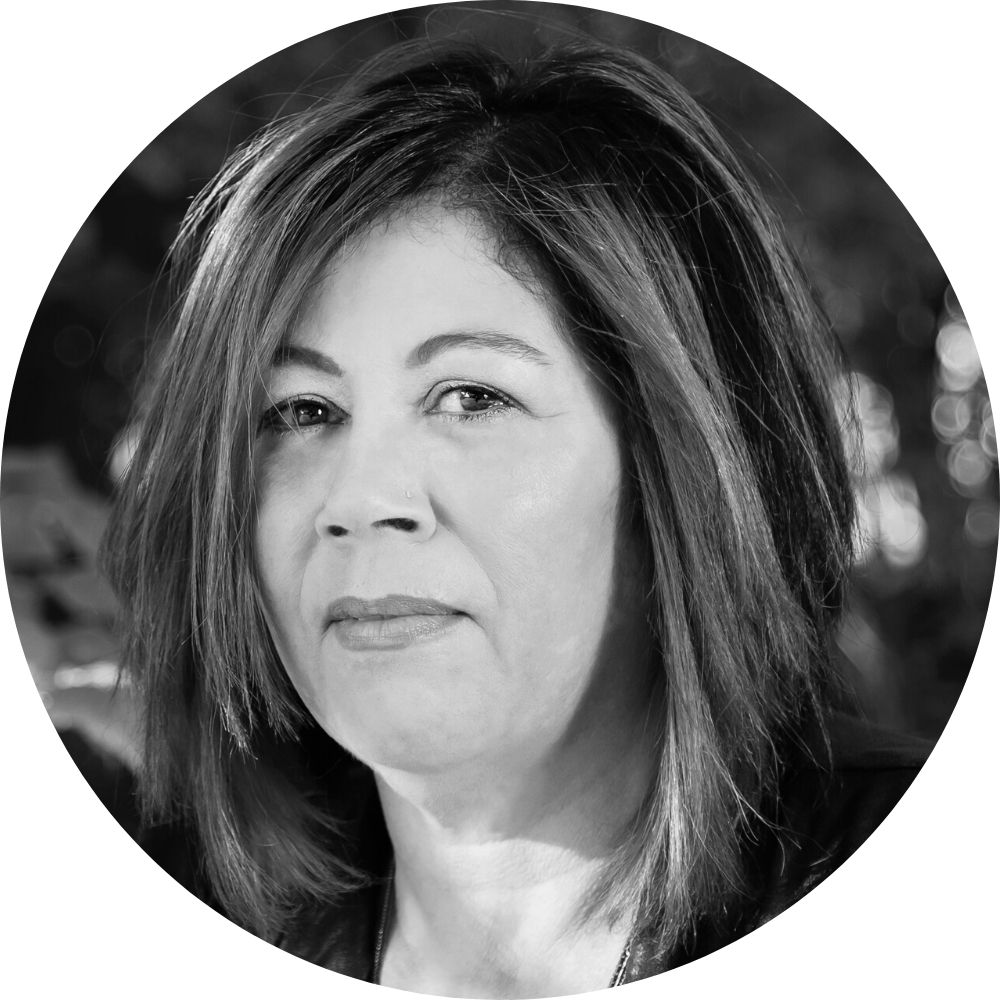
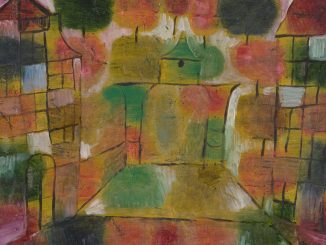
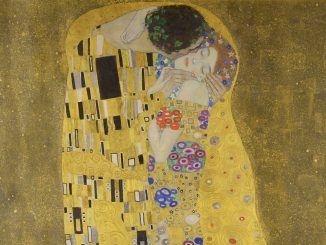
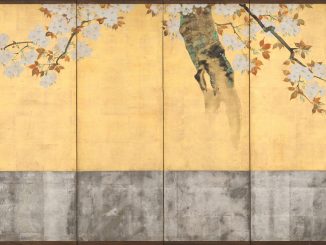
1 Trackback / Pingback
Comments are closed.